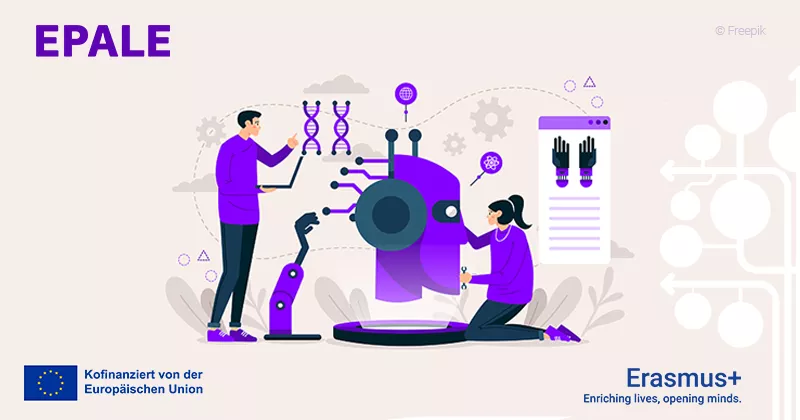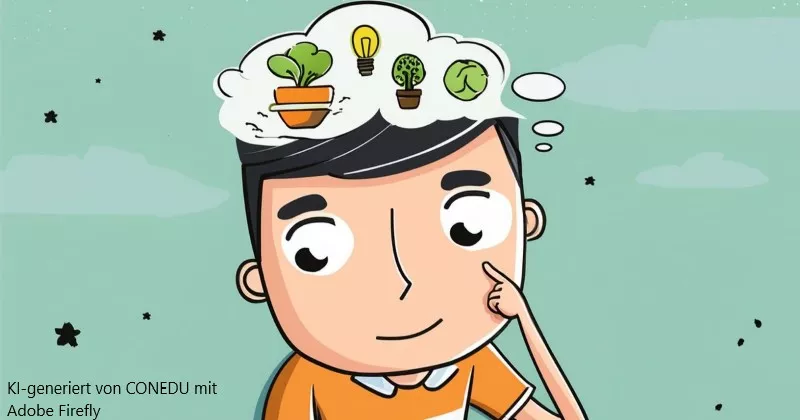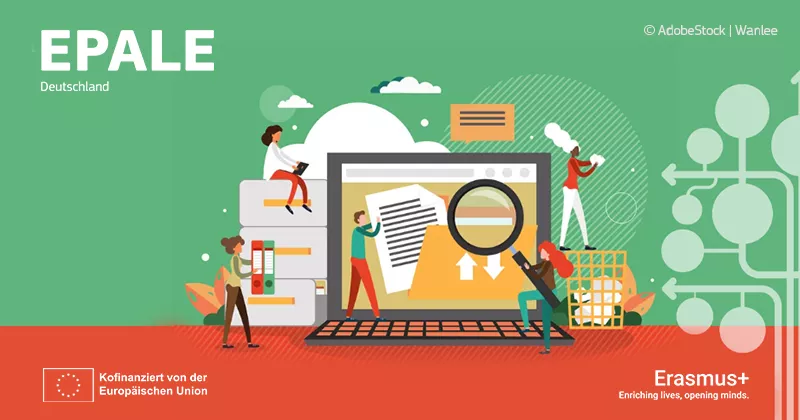Dal vecchio mondo al nuovo: cosa ci ha insegnato il Covid-19 e cosa ha cambiato nell’educazione alla salute e al benessere?
Ogni giorno metodologie e strumenti innovativi ci aiutano a trovare nuove soluzioni da utilizzare nella vita quotidiana e nei contesti professionali, e il progetto “I feel good” vorrebbe contribuire a crearne di nuovi.
Per raggiungere questo obiettivo, 7 organizzazioni provenienti da Italia, Grecia, Spagna, Ungheria, Germania e Lituania, tutte operanti nel settore giovanile con educatori e leader giovanili di tutta Europa, hanno iniziato a collaborare per sviluppare strumenti pratici da fornire agli educatori che vorranno usufruirne.
L’intento dei partner era quello di migliorare le competenze utili nella progettazione, facilitazione e valutazione di attività educative significative per i giovani nel campo dello stile di vita sano, dell'importanza di prendersi cura della salute mentale e fisica, delle misure di prevenzione nel campo dell'assistenza sanitaria e del benessere.
Per noi, l'innovazione non si riferisce solo a qualcosa di nuovo, ma può venire fuori anche da altri campi ed essere adattata al lavoro giovanile, aprendo nuovi orizzonti e migliorando la qualità del processo.
Siamo profondamente convinti che ognuno abbia un potenziale creativo più o meno uguale e che possa svilupparlo, proprio come qualsiasi altra competenza ma, soprattutto in alcuni contesti, una formazione adeguata può davvero fare la differenza.
Attraverso i partner e le loro comunità locali speriamo di migliorare a cascata l’attività socio educativa svolta nei gruppi target, oltre a fornire strumenti capaci di agire su largo raggio in tutti quei contesti che potremmo definire “delicati”, ma non solo! Tutti dovremmo lavorare con noi stessi per “sentirci bene”.
"I feel good" mira infatti a dotare educatori, animatori giovanili e insegnanti di nuovi strumenti creativi da utilizzare durante le attività legate all'assistenza sanitaria e alle misure di prevenzione. L’intero progetto si concentra sull'aumento delle loro capacità per ottenere prestazioni migliori e fornire servizi più utili in termini di diffusione di informazioni sull'importanza della salute fisica e mentale, concentrandosi sul benessere psicofisico e sulle misure preventive di protezione della salute. Ciò avrà un impatto sui giovani con cui lavorano tali operatori e aumenterà le competenze di questi ultimi per includere meglio i diversi gruppi target nella vita sociale, culturale ed economica delle loro comunità.
I partner hanno creato un piano dettagliato del progetto incentrato sulla qualità dei risultati intellettuali e dei corsi di formazione.
Il Kick-off meeting di settembre 2021 svoltosi a Torino ha dato l'opportunità a tutti i partner di incontrarsi e condividere la personale visione del progetto e sono stati discussi a fondo scopi, obiettivi, gruppi target e ostacoli previsti.
Partendo dal profilo di ciascun partner, sono state presentate le loro realtà e le loro competenze per definire la diversità del consorzio.
Quando si è svolta la prima formazione, in epoca post Covid, l’emozione di una formazione finalmente in presenza dopo mesi di lavoro a distanza ha fornito ai partecipanti una carica incredibile.
A maggio del 2022 ci siamo infatti recati in Ungheria per un primo corso che ci ha fornito idee e strumenti per realizzare i primi prodotti multimediali, per poi rivederci in Italia a novembre dello stesso anno. La particolarità delle formazioni svolte durante il progetto “I feel good” è stata proprio quella di poter vivere momenti indipendenti, utilizzabili singolarmente, ma allo stesso tempo complementari, e ci siamo messi alla prova come primi sperimentatori empatici di quegli strumenti che vorremmo fornire agli altri. Se educare significa tirare fuori il meglio di una persona, educare un educatore all’educazione alla salute può aiutare a migliorare il rapporto mente/corpo, perché alla base del nostro progetto vi è la profonda convinzione che, quando la mente sta male, il primo a risentirne è il fisico, capace di mandare segnali anche molto eloquenti. Spesso gli operatori si trovano a lavorare in gruppi di persone svantaggiate che non hanno o non vogliono la possibilità di ascoltare tali segnali, ed è per questo che serve una variegata scelta di strumenti diversi per affrontare esigenze diverse, arrivando ad una formazione non formale capace di rompere gli schemi imposti da situazioni di disagio sociale.
Le formazioni sono state organizzate tenendo conto del fruitore finale immaginato, e quindi hanno analizzato e proposto attività vicine ai giovani che potessero catturarne l’attenzione con strumenti a loro congeniali e vicini: video, attività pratiche semplici ma significative, momenti di rilassamento e di riflessione personale… sentirsi, ascoltarsi, volersi bene pensando al proprio corpo e alla propria mente, e tutto il lavoro legato al progetto ci ha alla fine portato ben oltre il target previsto.
Nello specifico, sono stati realizzati:
1. 7 workshop che hanno spaziato dagli spettacoli di strada alle lezioni scolastiche;
2. 14 video educativi realizzati con varie tecniche apprese durante le formazioni;
3. 1 toolkit, costituito da strumenti e metodi creativi da utilizzare durante le attività educative con i giovani appartenenti a gruppi vulnerabili;
4. Una pubblicazione con una serie di raccomandazioni su come adattare le attività dell'educazione non formale al tema della tutela della salute e del benessere, che verrà distribuita ai gruppi target specifici e al pubblico in generale nei paesi partecipanti e in Europa.
A cura di Daria Romiti
Riferimenti e risultati dal 31 marzo disponibili sulle pagine social del progetto:
Sito web
English Version
From the old world to the new: what has Covid-19 taught us and what has it changed in youth health and well-being education?
Every day innovative methodologies and tools help us find new solutions to use in everyday life and in professional contexts, and the "I feel good" project would like to help create new ones.
To achieve this goal, 7 organizations from Italy, Greece, Spain, Hungary, Germany and Lithuania, all working in the youth sector with educators and youth leaders from all over Europe, have started collaborating to develop practical tools to provide to educators who want to use them .
The intention of the partners was to enhance the skills useful in designing, facilitating and evaluating meaningful educational activities for young people in the field of healthy lifestyle, the importance of taking care of mental and physical health, prevention measures in field of health care and well-being.
For us, innovation does not only refer to something new, but it can also come from other fields and be adapted to youth work, opening new horizons and improving the quality of the process.
We are deeply convinced that everyone has a more or less equal creative potential and can develop it, just like any other skill but, especially in some contexts, adequate training can really make a difference.
Through the partners and their local communities we hope to improve the socio-educational activity carried out in the target groups, as well as providing tools capable of acting on a wide range in all those contexts that we could define as "delicate", but not only! We should all work with ourselves to “feel good”.
Indeed, "I feel good" aims to equip educators, youth workers and trainers with new creative tools to be used during activities related to health care and prevention measures. The whole project focuses on increasing their capabilities to perform better and provide more useful services in terms of disseminating information on the importance of physical and mental health, focusing on psychophysical well-being and preventive health protection measures. This will impact the young people they work with and increase their skills to better include the different target groups in the social, cultural and economic life of their communities.
Partners created a detailed project plan focusing on the quality of intellectual outputs and training courses.
The September 2021 Kick-off meeting held in Turin gave the opportunity to all partners to meet and share the personal vision of the project and the aims, objectives, target groups and foreseen obstacles were thoroughly discussed.
Starting from the profile of each partner, their realities and their skills were presented to define the diversity of the consortium.
When the first training took place, in the post-Covid era, the thrill of finally having training in presence after months of remote work gave the participants an incredible boost.
In May 2022 we went to Hungary for a first course that provided us with ideas and tools to create the first multimedia products, to then meet again in Italy in November of the same year. The peculiarity of the trainings carried out during the "I feel good" project was precisely that of being able to experience independent moments, usable individually, but at the same time complementary, and we put ourselves to the test as the first empathic experimenters of those tools that we would like to provide to others. If educating means bringing out the best in a person, educating an educator in health education can help improve the mind/body relationship, because our project is based on the deep conviction that, when the mind is sick, the first to suffer is the physique, capable of sending very eloquent signals. Operators often find themselves working in groups of disadvantaged people who do not have or do not want the opportunity to listen to such signals, and this is why a varied choice of different tools is needed to address different needs, arriving at non-formal training capable of break the patterns imposed by situations of social hardship.
The trainings were organized taking into account the imagined final user, and therefore analyzed and proposed activities close to young people that could capture their attention with tools that are congenial and close to them: videos, simple but significant practical activities, moments of relaxation and reflection personal… feeling, listening to each other, loving each other thinking about one's body and one's mind, and all the work related to the project has in the end taken us far beyond the expected target.
Specifically, the following have been created:
1. 7 workshops ranging from street performances to school lessons;
2. 14 educational videos made with various techniques learned during the training sessions;
3. 1 toolkit, consisting of creative tools and methods to be used during educational activities with young people from vulnerable groups;
4. A publication with a set of recommendations on how to adapt non-formal education activities to the topic of health and well-being protection, which will be distributed to specific target groups and the general public in the participating countries and in Europe.
Edited by Daria Romiti
By March 31, all the results will be available on the project's social pages:





